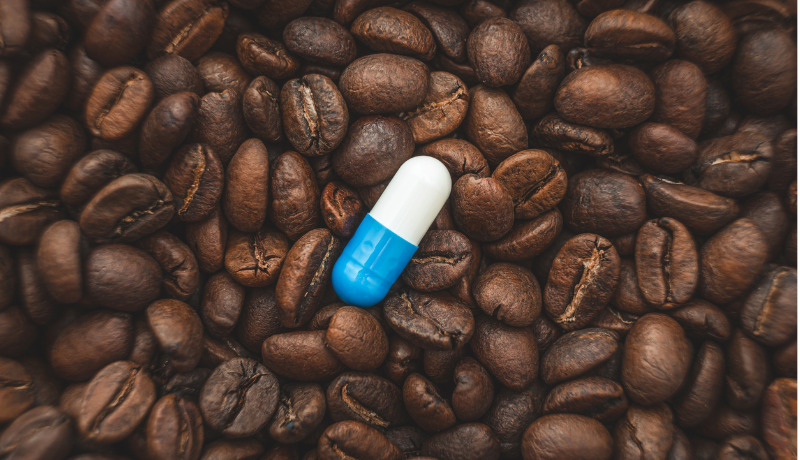
In the quest to optimize our cognitive capabilities, an intriguing class of substances, known as nootropics, has emerged. Derived from the Greek words ‘nous’ meaning ‘mind’, and ‘trepein’ meaning ‘to bend’, nootropics are compounds believed to enhance brain function. But what exactly are these cognitive enhancers, and how do they contribute to brain health?
What Are Nootropics?
Nootropics, often referred to as ‘smart drugs’ or ‘cognitive enhancers’, are substances that may improve cognitive function, particularly memory, creativity, or motivation, in healthy individuals. They come in various forms, including prescription medications, over-the-counter supplements, and even certain foods and beverages.
How Do Nootropics Work?
The precise mechanisms through which nootropics work vary greatly and depend on the specific substance. Some nootropics influence the brain’s chemical messengers, known as neurotransmitters, enhancing their production or preventing their breakdown. Others might enhance the brain’s blood supply or energy metabolism, supporting healthier brain cells and boosting their functionality.
Types of Nootropics
Nootropics can broadly be classified into two categories: synthetic and natural.
Synthetic Nootropics include prescription drugs like Modafinil, a stimulant prescribed for sleep disorders but used off-label for its cognitive-enhancing effects. Another example is Adderall, an ADHD medication known for boosting attention and concentration but is not without significant potential side effects and risk of dependency.
Natural Nootropics includes various herbs, dietary supplements, and food substances. Examples are Omega-3 fatty acids found in fish oil, known for their brain-protective qualities, and the antioxidant-rich Ginkgo Biloba, used in traditional medicine to improve memory and mental clarity.
The most commonly recognized natural nootropic is caffeine, widely consumed for its ability to enhance alertness and focus. And, of course, the easiest way to take your caffeine is in a morning cup of coffee.
For most of us, we don’t really see coffee as a means to increase alertness and focus, but rather as of a ritual that helps us wake up a little faster and feel ready to face the world.
In other words, we value caffeine in coffee not as a means to feeling more alert, but as a quick and delicious way to stop feeling sleepy.
Nootropics and Brain Health
Nootropics’ potential to support brain health lies primarily in their capacity to enhance cognitive function, protect the brain, and promote neuroplasticity. Neuroplasticity refers to the brain’s ability to reorganize itself, forming new neural connections throughout life, which is critical for learning and adapting to new experiences.
By boosting neurotransmitter levels, improving energy metabolism, and promoting brain cell growth, nootropics can potentially enhance memory, focus, and mental agility, thereby supporting healthier cognitive function. They may also aid in brain recovery following injury or stress and could potentially help delay cognitive decline associated with aging.
Final Thoughts
While the concept of nootropics is appealing, it’s important to approach them with caution. Not all nootropics are created equal, and while some have well-researched cognitive-enhancing effects, others may have less scientific backing and unknown long-term effects.
Before starting any nootropic regimen, it’s crucial to consult with a healthcare professional. Furthermore, it’s vital to remember that nootropics are not a magic pill for cognitive excellence. They should be used in conjunction with a healthy lifestyle that includes a balanced diet, regular exercise, adequate sleep, and mental stimulation for optimal brain health.
Before you go! Did you check out our short but fact-filled book, Brain Sharpeners? It gives the lowdown on 48 different brain-friendly foods, and is just a click away on Amazon.
References:
Sydor, A. and Brown, R. Y. (eds.) (2008). Molecular Neuropharmacology: A Foundation for Clinical Neuroscience (2nd ed.). New York: McGraw-Hill Medical. See especially pp. 318, 321.
Jones, M. D., Sherzai, D., & Sherzai, A. (2021). The Rise of Nootropics: A Smart Move or Health Risk? Published in American Journal of Lifestyle Medicine, Volume 15, Issue 6, pages 555–560.
Kimura, K., Ozeki, M., Juneja, L. R., & Ohira, H. (2007). “L-Theanine reduces psychological and physiological stress responses.” Published in Biological Psychology, Volume 74, Issue 1, pages 39–45.
Gómez-Pinilla, F. (2008). “Brain foods: the effects of nutrients on brain function.” Published in Nature Reviews Neuroscience, Volume 9, Issue 7, pages 568–578.
